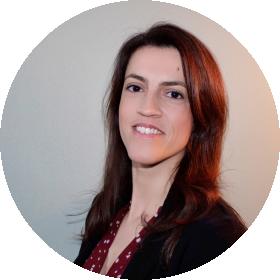
Isabel Lustosa da Costa is a historian, essayist and writer who works at Fundação Casa de Rui Barbosa as a researcher and historian. Known for her research into the history of the press in Brazil, da Costa has a doctorate in political science from Instituto Universitário de Pesquisas do Rio de Janeiro (IUPERJ). She previously worked at Museu da República and IPHAN.
Fernando Antonio Novais is an emeritus professor at the University of São Paulo (USP), where he lectured in modern and contemporary history from 1961 to 1986. From 1986 to 2003 he was a lecturer at the Institute of Economics, State University of Campinas (Unicamp). He earned his doctorate in history from USP in 1973, and is author of Portugal e Brasil na Crise do Antigo Sistema Colonial (“Portugal and Brazil in the Crisis of the Old Colonial System”), a classic of Brazilian historiography, as well as countless important works of history and historiography. Responsible for supervising numerous master’s and doctoral candidates, he currently lectures at the Faculty of Economics at Faculdades de Campinas (FACAMP).
Paulo Herkenhoff is a curator, art critic and author of many books on art. He was the curator of the 24th São Paulo Art Biennial, and also worked as a curator at Museu de Arte Moderna do Rio de Janeiro and Museu Nacional de Belas Artes. He was also assistant curator with the Department of Painting and Sculpture of MoMa, New York. He was a member of the committee that selected the artistic director for the 2012 Documenta in Kassel. Today, he works as the curator of Museu de Arte do Rio (MAR), opened in 2013 in Rio de Janeiro.
Armando Strozenberg has a degree in journalism and a postgraduate diploma in sociology from Université Paris. He founded and was the first director and professor of the Department of Communication at what is now UniverCidade. In 1983 he created Agência Contemporânea advertising agency. He sits on the boards of Museu de Arte Moderna do Rio de Janeiro, Escola Superior de Propaganda e Marketing, Brazil Foundation, the Brazilian Symphony Orchestra Foundation, Instituto Light, TEDxRio and Casa do Saber Rio, which he also helped create and of which he is a shareholder and curator. Since December 2011 he has been a member of the Board of the City of Rio de Janeiro.
Gilberto Chateaubriand is an art collector, diplomat and businessman. Son of Assis Chateaubriand, he owns the biggest collection of Brazilian art – around seven thousand works – which have been on loan to and exhibited at Museu de Arte Moderna do Rio de Janeiro since 1993.
Marcelo Mattos Araujo is the secretary of state for culture in São Paulo. He holds a degree in law from the University of São Paulo (USP), a postgraduate diploma in museology from Fundação Escola de Sociologia e Política de São Paulo and a doctorate from USP. He served as director of Pinacoteca do Estado de São Paulo from 2002 to 2012 and director of Museu Lasar Segall from 1997 to 2001. He has worked with several museums in Brazil and abroad, and was advisor for the Ema Gordon Klabin Cultural Foundation. He was a lecturer on the postgraduate course in museology at USP’s Museum of Archaeology and Ethnology (1999-2006) and chairman of the São Paulo Association of Museologists (1987), chairman of the São Paulo Regional Council of Museology (1989), member of the Federal Council of Museology, and member of the Executive Board of the Brazilian Committee of the International Council of Museums, ICOM (1994 to 2009). He sits on the boards of the Bienal de São Paulo Foundation and the José e Paulina Nemirovsky Foundation.
Ângela Gutierrez is a businesswoman and collector of Brazilian art. She has a degree in business administration with specialisation in marketing from Fundação Getúlio Vargas. She served as cultural secretary for Minas Gerais and in 1998 founded Instituto Cultural Flávio Gutierrez to promote museological and cultural projects and programmes. The institute is named after her father, Flávio Castelo Branco Gutierrez, one of the three founders of Andrade Gutierrez, a Brazilian multinational founded in 1948, currently the third largest construction company in Brazil and one of the biggest in Latin America, with operations in over 44 countries. She founded Museu do Oratório in Ouro Preto, Museu de Santana in Tirandentes and Museu de Artes e Ofícios in Belo Horizonte, all in Minas Gerais state. In 2000 she was awarded the Order of Cultural Merit.
José Roberto Marinho is a Brazilian businessman and son of journalist Roberto Marinho, who created the Roberto Marinho Foundation in November 1977. He is currently the chairman of the foundation and also the vice-president of Organizações Globo, a job he shares with his brother, João Roberto Marinho. Their older brother, Roberto Irineu Marinho, is the president of the group.
Milú Villela (Maria de Lourdes Egydio Villela) is a psychologist, businesswoman and philanthropist. With a degree from PUC-SP, she is currently the president of Museu de Arte Moderna de São Paulo and vice-president of ITAÚSA, a company of which she is also one of the biggest shareholders.
Walter Moreira Salles Júnior is a Brazilian film producer and director. He is the son of Walter Moreira Salles, a former banker and ambassador, and Elisa Margarida Gonçalves Moreira Salles. His family held a controlling interest in Unibanco, which in 2008 merged with Itaú to form the holding, Itaú Unibanco. After studying economics at PUC-Rio he earned a degree in audiovisual communication from the University of Southern California. In 2003, he was voted one of the 40 best directors in the world by British newspaper, The Guardian. In 2012, Salles directed a film adaptation of Jack Kerouac’s On the Road, adapted for the screen by José Rivera and produced by Francis Ford Coppola.
Return to Mapping menu

